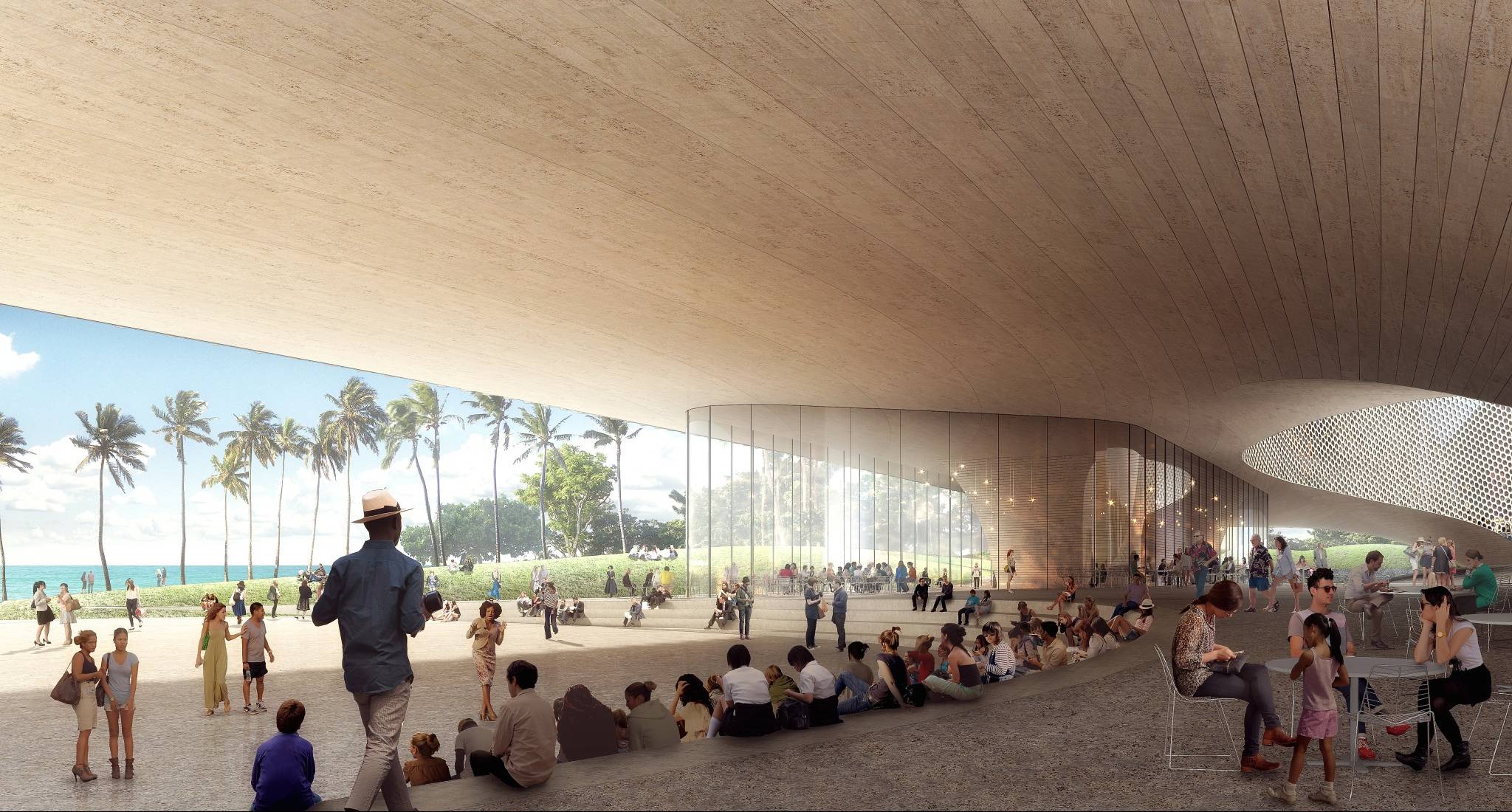Scandinavian firm Snøhetta paired up with Honolulu-based WCIT Architecture to design a proposal for the Barack Obama Presidential Center Library at the University of Hawaii.
Snøhetta wasn’t the only high-profile firm commissioned by this university in the tropics; Allied Works and MOS, the latter pairing up with Honolulu-based Workshop-Hi, also submitted designs for Hawaii’s bid to host the library, Inhabitat reports.
So far, Hawaii is seen as an underdog in the race, as its competitors in the contiguous U.S.—New York’s Columbia University and the University of Chicago—are considered favorites to win the bid. Also in the race is the University of Illinois in Chicago.
The three final cities each have a personal connection to President Obama: Honolulu is the city of the president’s birth and early childhood, New York city is where he spent his time as an undergraduate at Columbia University, and Chicago is where he taught law, met his wife, and started his political career.
All three designs for the University of Hawaii are set on a beach site adjacent to Kaka’ako Waterfront Park. The plan by Snøhetta and WCIT Architecture features a building that “appears square from the outside, but opens at one corner into a rounded courtyard with a pool. One end of the structure meets the ground, providing public access to a roof planted with grasses,” Dezeen reports.
The designs for the University of Hawaii aim to elevate the facility from just a library into a center for learning, public space, and multipurpose center.
“It will be a place where the president can come and meet with leaders from Asia … to bring Asia to Hawaii and to the rest of the world,” Honolulu Mayor Kirk Caldwell told local station KHON2 News.
Read more at Dezeen.
Related Stories
| Aug 11, 2010
Platinum Award: Reviving Oakland's Uptown Showstopper
The story of the Fox Oakland Theater is like that of so many movie palaces of the early 20th century. Built in 1928 based on a Middle Eastern-influenced design by architect Charles Peter Weeks and engineer William Peyton Day, the 3,400-seat cinema flourished until the mid-1960s, when the trend toward smaller multiplex theaters took its toll on the Fox Oakland.











